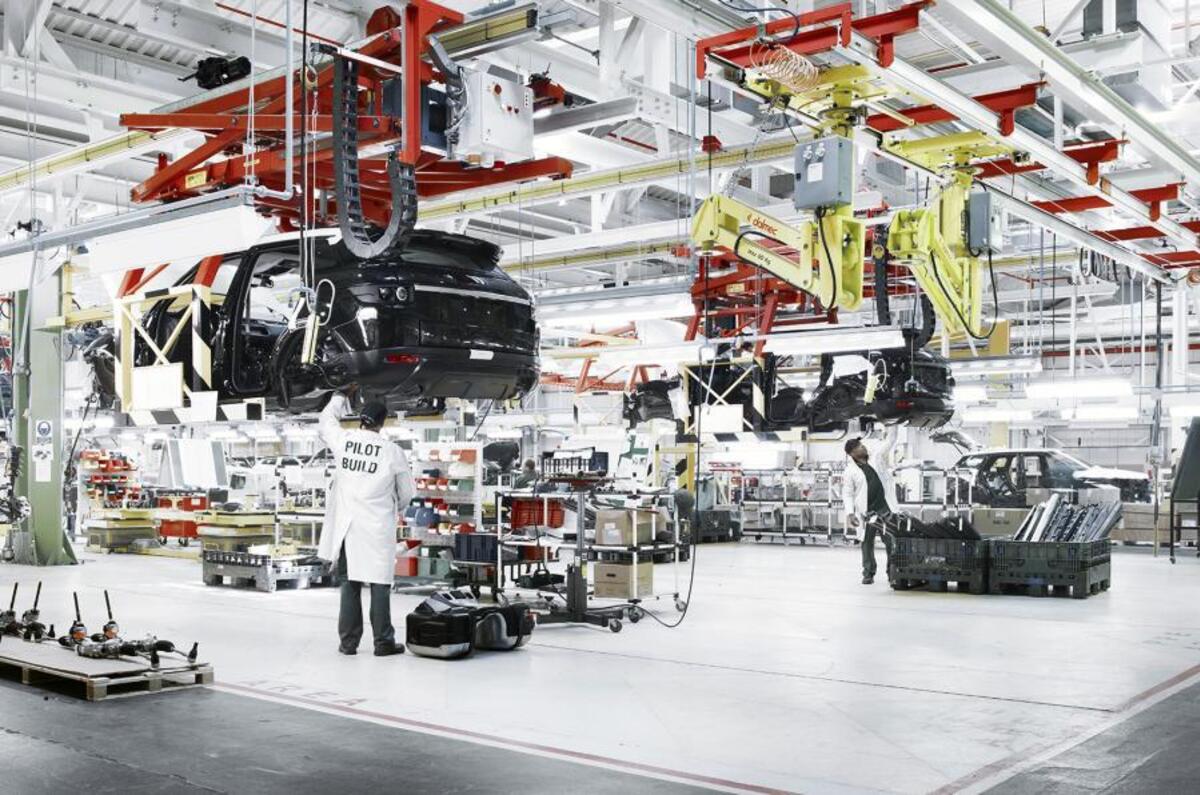Jaguar Land Rover (JLR) has confirmed it will cut 4500 jobs from its UK workforce as part of a major cost-cutting programme aimed at building long-term, profitable growth.
The cuts account for around 10% of the Tata-owned company’s 43,000-strong staff across the country, which includes plants in Castle Bromwich, Solihull and Halewood. The job losses are in addition to 1500 workers cut last year.
Though the numbers of jobs cut at specific locations have yet to be announced, CEO Dr. Ralf Speth JLR has told the media on a conference call that "all locations" within the UK will see some form cuts, focused on "the management and leadership areas of our facilities" Workers will initially be reduced through a voluntary redundancy programme, or via the offer of early retirement packages.
JLR CEO Ralf Speth said: "We are taking decisive action to help deliver long-term growth, in the face of multiple geopolitical and regulatory disruptions as well as technology challenges facing the automotive industry."
Read more: Opinion - Why today could mark the first day of Jaguar's salvation
The announcement today by the UK’s largest car manufacturer follows falling demand for its saloon cars and diesel engines, along with a sharp fall in sales in China of 21.6% in 2018. As a result, it posted a loss of £90 million in the third-quarter of 2018.
The firm has also released its full year's sales figures for 2018, confirming an overall drop across both brands of 4.6% compared with 2017. Out of a total of 592,708 vehicles, nearly 181,000 Jaguars were sold (a modest 1.2% growth on 2017) and just under 412,000 Land Rovers (a 6.9% drop on 2017).
As well as the Chinese slump, JLR – and to some extent, the broader car market – has been affected by a number of other factors including Brexit, US trade tariffs, negativity around diesel and new WLTP regulations.
The job cuts form part of what JLR calls a “turnaround and transformation programme” which is set to improve cashflow and costs to save £2.5bn over 18 months.
JLR cut 1000 jobs at its Solihull plant – which it also shut down for two weeks in October last year due to reduced demand. In December, its Castle Bromwich site, which produces models including the Jaguar XE and Jaguar XF, operated on a three-day week.
No factory closures and electric investment
Despite the job losses, JLR has made no mention of any plans for immediate factory closures. Speth said he "refuses to comment" on such matters, saying "we have to wait for politics - what will happen after 29th March?" in another reference to the potential effect of a hard Brexit on production efficiency.





Join the debate
Add your comment
Which ever way you look at it
Piss Poor Management
Brings one to question why Tata don't have Speth's head on a pike. Clearly they are pleased?
.
Comments regarding JLR being bought by the Germans, clearly you've forgotten JLR was once owned by BMW....
They did a poor job, as they do with their unreliable engines - swirl flaps, cam chain disintegration, imploding turbos.
German reliability? German snake oil salesmen. Cheaters all.
CarNut170 wrote:
It was only the Rover Group that was once owned by BMW, which also included Land Rover. Jaguar at the time was owned by Ford who then acquired Land Rover when Rover collapsed. But I do recall the BMW V8 engines in the Range Rovers having many issues before being replaced by the more reliable Jaguar V8 once Ford consolidated engines for both brands. Having said that, BMW seem to be doing a decent job managing Mini and Rolls Royce and the VW Group aren't doing to shoddily with Bentley either. And when Rover was left with British management, it all sadly came to an end in 2005.
Pray that the Germans will
Pray that the Germans will make a bid to buy this dead elephant and make a decent fist of it
This company has been in trouble for many years and needs a drastic move to help save it and the workers.
The Germans or maybe the chinese who are quickly accelerating their presense in the world both automotively and otherwise